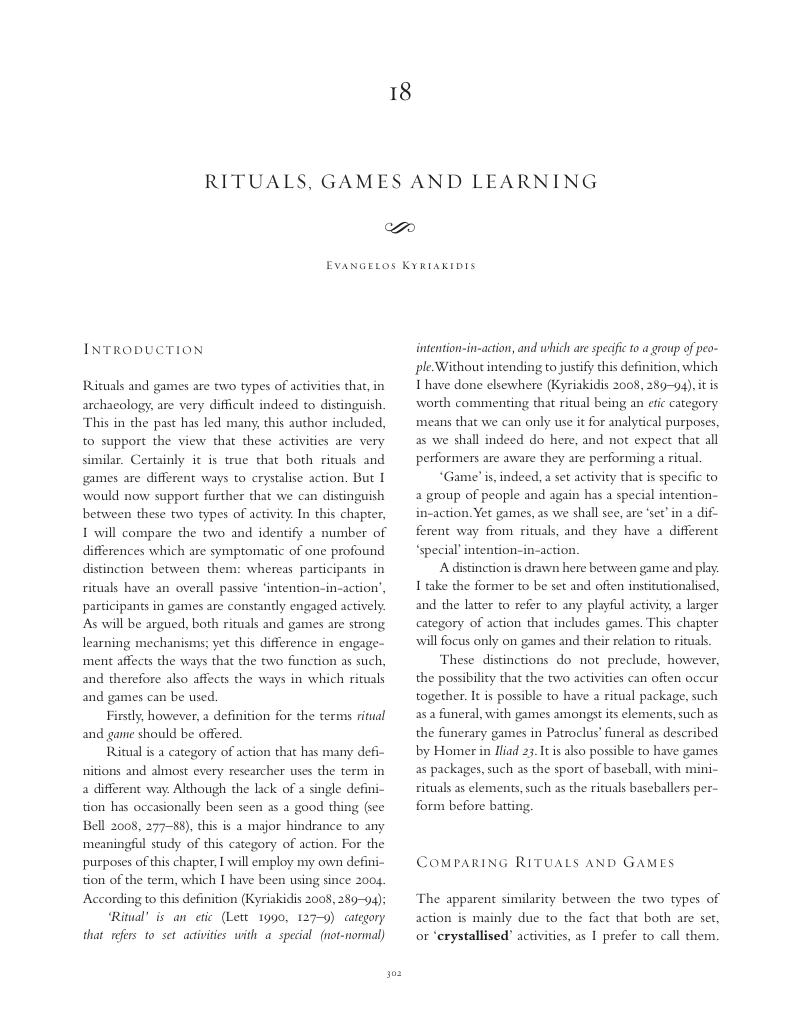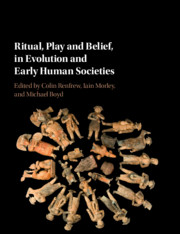Book contents
- Ritual, Play and Belief, in Evolution and Early Human Societies
- Ritual, Play and Belief, in Evolution and Early Human Societies
- Copyright page
- Dedication
- Contents
- Notes on the Contributors
- Acknowledgements
- 1 Introducing Ritual, Play and Belief, in Evolution and Early Human Societies
- 2 Introduction: Play as the Precursor of Ritual in Early Human Societies
- Part I Play and Ritual: Forms, Foundations and Evolution in Animals and Humans
- Part II Playing with Belief and Performance in Ancient Societies
- Part III The Ritual in the Game, the Game in the Ritual
- 14 Play, Ritual and Transformation: Sports, Animals and Manhood in Egyptian and Aegean Art
- 15 Bull Games in Minoan Crete: Social and Symbolic Dimensions
- 16 Epic Games
- 17 The Ballgame, Boxing and Ritual Blood Sport in Ancient Mesoamerica
- 18 Rituals, Games and Learning
- Part IV From Play to Faith? Discussion
- Index
- References
18 - Rituals, Games and Learning
from Part III - The Ritual in the Game, the Game in the Ritual
Published online by Cambridge University Press: 06 December 2017
- Ritual, Play and Belief, in Evolution and Early Human Societies
- Ritual, Play and Belief, in Evolution and Early Human Societies
- Copyright page
- Dedication
- Contents
- Notes on the Contributors
- Acknowledgements
- 1 Introducing Ritual, Play and Belief, in Evolution and Early Human Societies
- 2 Introduction: Play as the Precursor of Ritual in Early Human Societies
- Part I Play and Ritual: Forms, Foundations and Evolution in Animals and Humans
- Part II Playing with Belief and Performance in Ancient Societies
- Part III The Ritual in the Game, the Game in the Ritual
- 14 Play, Ritual and Transformation: Sports, Animals and Manhood in Egyptian and Aegean Art
- 15 Bull Games in Minoan Crete: Social and Symbolic Dimensions
- 16 Epic Games
- 17 The Ballgame, Boxing and Ritual Blood Sport in Ancient Mesoamerica
- 18 Rituals, Games and Learning
- Part IV From Play to Faith? Discussion
- Index
- References
Summary

- Type
- Chapter
- Information
- Ritual, Play and Belief, in Evolution and Early Human Societies , pp. 302 - 308Publisher: Cambridge University PressPrint publication year: 2017
References
- 2
- Cited by

